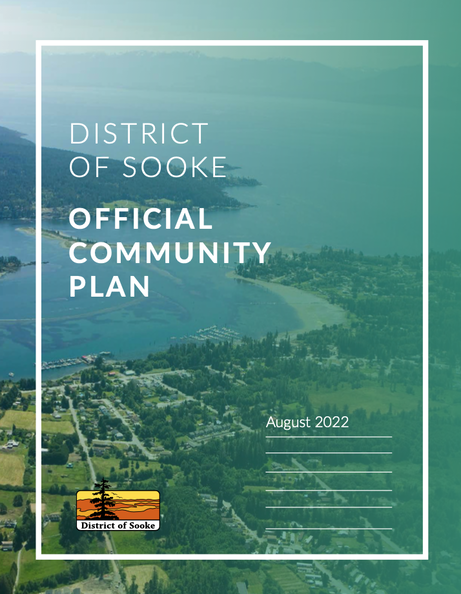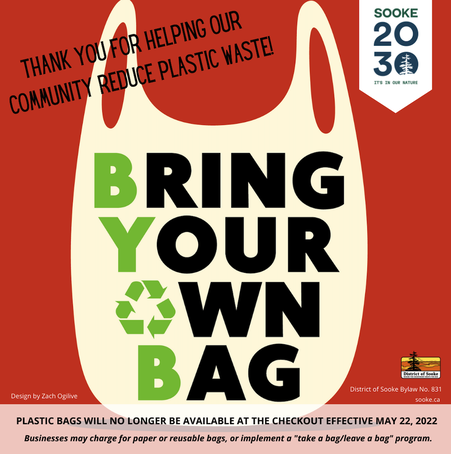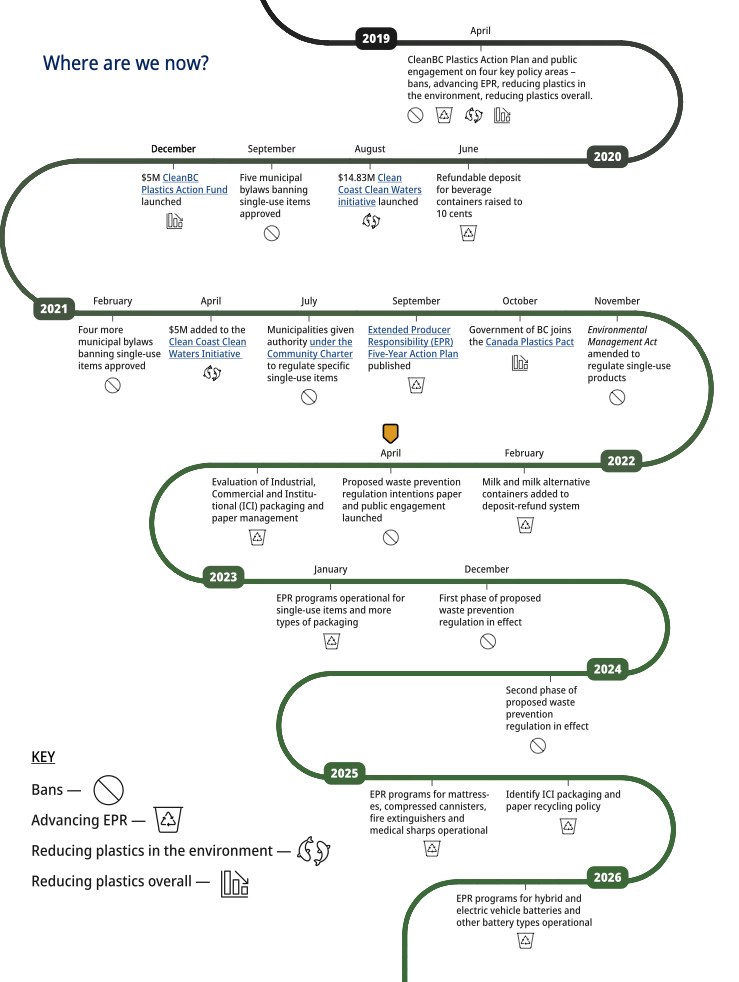
At this potential second-reading stage (where no public input is legislatively permitted, but you're welcome to attend), we will contemplate three options as stated at the outset of a massive agenda package that includes the April (second) draft, a track-change iteration and a file of public commentary received since the first draft was released 11 months ago.
These options are:
1. Approve the amendments, give the OCP its second reading and trigger a public hearing (tentatively booked for Wed., Sept. 27 with an if-necessary continuation the next night).
2. Suggest further amendments as alterations or additions.
3. Reject the amendments and suggest alternative actions, among which (as council has already discussed) is the option of shelving it during this election period, allow its contents and proposed directions to be a substantial election issue, and then allow the new council (elected, one would perhaps naively assume, on how they're interpreted this most important of all Sooke planning documents) to have their way with it when they take office two short months from now.
Council has demonstrated, and will likely do so again tomorrow, that we're of multiple minds about this. Some want to move forward and complete the work. Some would like to press pause and trust that a final round of community input opportunities would take place in the new year, this time in-person minus the COVID restrictions.
As ever with my middle-way mindset, I can see the logic in both approaches and look forward to participating in tomorrow night's discussion with options open. Any which way, I reckon that we've achieved the ambition identified in our 2019-2022 Strategic Plan, which was to "develop a new Official Community Plan" (item 3.2.1). After more than two eventful pandemic years of effort, consider this one well and truly developed if not adopted.
Personally, as I've said at earlier meetings and in previous blog entries, I remain convinced that this OCP is a solid, timely, best-practice piece of legislation that meets its formal requirements, captures a compelling vision of Sooke's future and offers a comprehensive set of policies backed by a 120-point implementation roadmap on how to patiently, strategically get there.
In its preamble (aka executive summary), the OCP Advisory Committee names the six big issues it heard from the public and notes how each is effectively addressed in the final draft they (six in favour, Ellen Lewers against) approved in January.
1. The strong desire to maintain and enhance the unique character of Sooke
2. The importance of protecting our natural environment
3. The need for focused growth and support for infrastructure enhancements in the Town Centre
4. The importance of building upon and enhancing Sooke's historic and productive relationship with the T'Sou-ke
5. The need for improved transportation infrastructure and strategies to address vehicular congestion
6. Our community's united support for collective efforts to address climate change.
Chiefly for me, the pending OCP is absolutely consistent with earlier District OCPs (2010, 2001) and CRD plans dating back to the 1976 Sooke Area Settlement Plan. in all these documents, the public and their elected representatives have recognized that population growth is to be focused on the town centre as the heart of the "complete and compact community" that the CRD Regional Growth Strategy requires of Sooke. Also reaffirmed is that relatively modest growth is to take place in the sewer-specified area and that elsewhere the District is to retain its rural and forested nature.
In the new OCP, the TC is given better definition with core, waterfront and transitional designations. The document critically aligns itself with all the other orders of government, Canadian and international, that recognize we are living in a climate-changing world and that we need to rethink business as usual en route to 2050. This it does through a positive (not alarmist) community development perspective captured so sweetly and simply in the 29-word OCP vision statement (honed at great effort from first-wave public input in 2020): "Sooke is a small town with a big heart. It is a vibrant net-zero emissions community, cradled in the stunning beauty and vitality of the ocean and forest."
That reads, in text-message brief, like home to me, a place where I, the people I know and surely future generations will want to live and rock their own next generations to life if they're seeking a refuge from urban centres.
As for enacting its ambitions, half the OCP is dedicated to policies and actions regarding paramount community priorities -- transportation, natural environment, parks and trails, green building, infrastructure, food security, community economic development, arts and culture, housing, recreation and fair, equitable, compassionate values made real. (And it makes clear how all these matters are explored in suitable depth in mostly recently updated District plans and reports that must legally align with the one master OCP that rules them all.)
Please (i'll resist typing that in caps) read the Delivering Picture Sooke section on pp. 158-173 for the at-a-glance policy-based actions proposed in this OCP for staff and future councils to consider enacting given available funding. This section should give you a sound basis for an informed opinion about the document as a whole. Reading the thing cover-to-cover is recommended, of course.
The proposed OCP also includes a set of Development Permit guidelines critical in particular for town centre form and character as growth continues. Council has received, yet I can't honestly understand, suggestions from some that these DP guidelines should be eliminated entirely. Certainly not after seeing first-hand how the current DP requirements are proving critical in championing the community's vision for Brownsey Blvd. I've looked, but I can't find any OCPs that don't include robust DP guidelines -- with all due exemptions for small-scale (less than four homes) development, just as ours does.
Unsurprisingly, the OCP conversation this year has been led by a minority with specific concerns. These concerns are absolutely valid, as are those of all 15,084 (2021 census) residents of Sooke. It's good that other engagement methods -- online surveys, community sounding boards, virtual stakeholder consultations with numerous community groups and organizations, school sessions and more - captured wide input, too, but arguably less than had COVID not struck.
(The current system by which local governments receive public input is like Churchill's comment about democacy: seriously flawed but better than the alternatives. Simon Fraser University this summer published a report analyzing BC public hearings. Their downsides is captured in this statement: "While a noisy minority tends to dominate public hearings, the silent majority of reasonable people are by definition never heard. Elected officials therefore are forced to pander to the skewed view of the vocal minority of voters present, rather than doing what they have been already elected to do, which is make the best decision for the future of the community overall.")
Tomorrow Night
I said at the last chapter review that I felt the OCP was "95% complete" after all that the OCP Advisory Committee, planning staff and the public had contributed (even during COVID, #Sooke engagement was much higher per-capita than most communities even without a pandemic.) I also noted it would benefit from the tinkering we as council were doing and could readily be modified based on themes voiced during the public hearing.
As Councillor Beddows has noted, we've already dealt with seemingly the biggest of the first-wave concerns: 1. The 30m oceanfront setback (returned to its 15m norm in Sooke); 2. Whiffin Spit density (now back to its Rural Residential designation rather than Community Residential); and 3. Phase three of West Ridge Trails (re-included again in the CR designation as a prelude to the developer's requests for rezoning and sewer inclusion, without which it won't move ahead.)
Definitely many in the community appreciate the OCP and want to see it moved forward now. The Sooke News Mirror has sent mixed messages, but its latest editorial called for us to go for it. So too has OCP Advisory Committee Chair Helen Ritts, whose July 19 comment I read aloud into the record that night ...
"Dear Mayor and Council: I am writing to voice my support for Council to give the draft OCP 2nd reading and work to finalize this OCP before the October municipal election. The April 2022 draft OCP is an accurate reflection of a specified and open OCP process, created through 18 months of public engagement.
The role of Sooke residents in the OCP was to share their future vision of our community. The OCP Advisory Committee understood its role was to ensure that the OCP was brought to Council for 1st reading was an accurate summary of the majority of public respondents. As the chair of the OCP Committee, I am confident that our committee understood and delivering on this responsibility. The role of Council is to pass bylaws in support o the OCP and community vision. Barring any concerns about procedure, this OCP should be accepted as it is and put forward for public hearing.
Sooke is growing rapidly. We need this plan ASAP to manage our growth successfully.
Sincerely,
Helen Ritts, Sooke, BC
So there you have it: All told, I guess, I'm reliably on the fence again pending a decision tomorrow night.
I like the idea of moving to a public hearing late this month as the opportunity for a full-scale community conversation pre-election. Citizens could have their say about the OCP and they'd also be able to hear from the growing number of candidates for office (nomination deadline is this Friday at 4 PM). The later, in turn, would surely appreciate the opportunity to reach voters.
Alternately, I can see the logic of pausing until after the election. At a public hearing, the current council would have the advantage of fielding and responding to all the public input while other candidates could only use their allocated time as one among many at the mic. That would strike some (me included) as unfair advantage to the incumbents.
Furthermore, District staff resources are hard hit at the moment by a variety of factors and our planning department responsible for the OCP is understaffed, so this too must be a consideration.
If we were to vote for a delay, I'd certainly like to discuss tomorrow night the next suggested step in this saga. With at least five of us standing for re-election, how would/should we play it in the event we retain our seats. Certainly something for me to ponder in these next 24 hours.
Also from this blog ...
* Draft OCP: My Appreciative Inquiry (Oct. 20, 2021)
* OCP Update: Fall 2021 (Sept. 4, 2021)
* Team OCP (Aug. 5, 2020)
* Masterplanning Sooke's Smart Growth: OCP Preview (Dec. 20, 2019)


 RSS Feed
RSS Feed